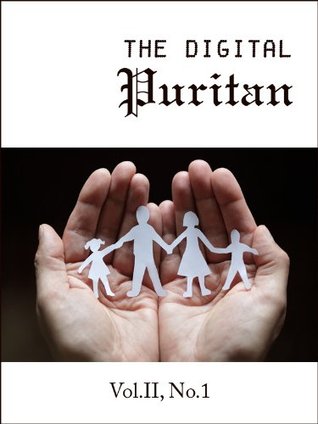- Bible
- Read the Bible
- Bible Versions
- Verse of the Day
- Reading Plans
- Verses by Topic
- Books of the Bible
- Bible Images
- Study
- Commentaries
- Concordances
- Dictionaries
- Encyclopedias
- Sermons
- Bible Atlas & Maps
- BP Wiki
- Devotionals
- Today's Devotionals
- Light of the World
- All Devotionals
- Inspirational Quotes
- More
- Picture Quotes
- Videos
- Inspirational
- Bible Study
- What The Bible Says
- Bible Q&As
- Daily Bread
- Bible by Genre
- Bible Stories
- Random Bible Verse
- Community
- Store
The Digital Puritan - Vol.II, No.1
by Thomas Watson
"The Digital Puritan" is a quarterly digest of carefully selected Puritan writings, suitable for personal devotional use or for small group discussion. The focus of each article is typically more practical than theological. The originals have been sparingly edited, generally only to correct typographical errors or make the text more readable. Scripture references (ESV) are embedded in the text as hyperlinks--no wireless connection is needed.
This special edition ("The Puritans on Parenting") contains the following:
1. Children are a Blessing from the Lord - Thomas Manton
2. The Duties of Parents for their Children - Richard Baxter
3. Correction and Instruction - Thomas Case
4. A Church in the House - Matthew Henry
5. A Preliminary Discourse to Catechising - Thomas Watson
6. The Westminster Shorter Catechism.
This special edition ("The Puritans on Parenting") contains the following:
1. Children are a Blessing from the Lord - Thomas Manton
2. The Duties of Parents for their Children - Richard Baxter
3. Correction and Instruction - Thomas Case
4. A Church in the House - Matthew Henry
5. A Preliminary Discourse to Catechising - Thomas Watson
6. The Westminster Shorter Catechism.
BUY NOW
Kindle Edition, 143 pages
Published February 10th 2012 by Digital Puritan Press
© 2025 Bibleportal.com All rights reserved.

He was educated at Emmanuel College, Cambridge, where he was noted for remarkably intense study. In 1646 he commenced a sixteen year pastorate at St. Stephen's, Walbrook. He showed strong Presbyterian views during the civil war, with, however, an attachment to the king, and in 1651 he was imprisoned briefly with some other ministers for his share in Christopher Love's plot to recall Charles II of England.
He was released on 30 June 1652, and was formally reinstated as vicar of St. Stephen's Walbrook. He obtained great fame and popularity as a preacher until the Restoration, when he was ejected for nonconformity. Not withstanding the rigor of the acts against dissenters, Watson continued to exercise his ministry privately as he found opportunity. Upon the Declaration of Indulgence in 1672 he obtained a license to preach at the great hall in Crosby House. After preaching there for several years, his health gave way, and he retired to Barnston, Essex, where he died suddenly while praying in secret. He was buried on 28 July 1686.
Thomas Watson was an English, non-conformist, Puritan preacher and author.
He was educated at Emmanuel College, Cambridge, where he was noted for remarkably intense study. In 1646 he commenced a sixteen year pastorate at St. Stephen's, Walbrook. He showed strong Presbyterian views during the civil war, with, however, an attachment to the king, and in 1651 he was imprisoned briefly with some other ministers for his share in Christopher Love's plot to recall Charles II of England.
He was released on 30 June 1652, and was formally reinstated as vicar of St. Stephen's Walbrook. He obtained great fame and popularity as a preacher until the Restoration, when he was ejected for nonconformity. Not withstanding the rigor of the acts against dissenters, Watson continued to exercise his ministry privately as he found opportunity. Upon the Declaration of Indulgence in 1672 he obtained a license to preach at the great hall in Crosby House. After preaching there for several years, his health gave way, and he retired to Barnston, Essex, where he died suddenly while praying in secret. He was buried on 28 July 1686.
... Show more